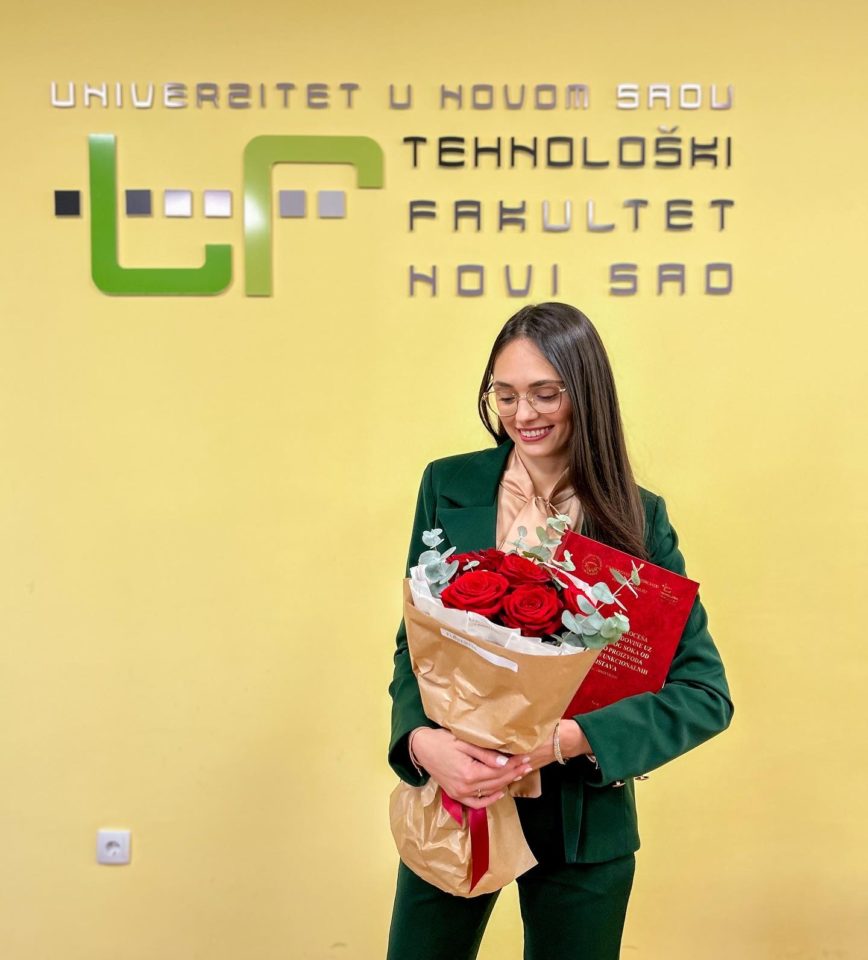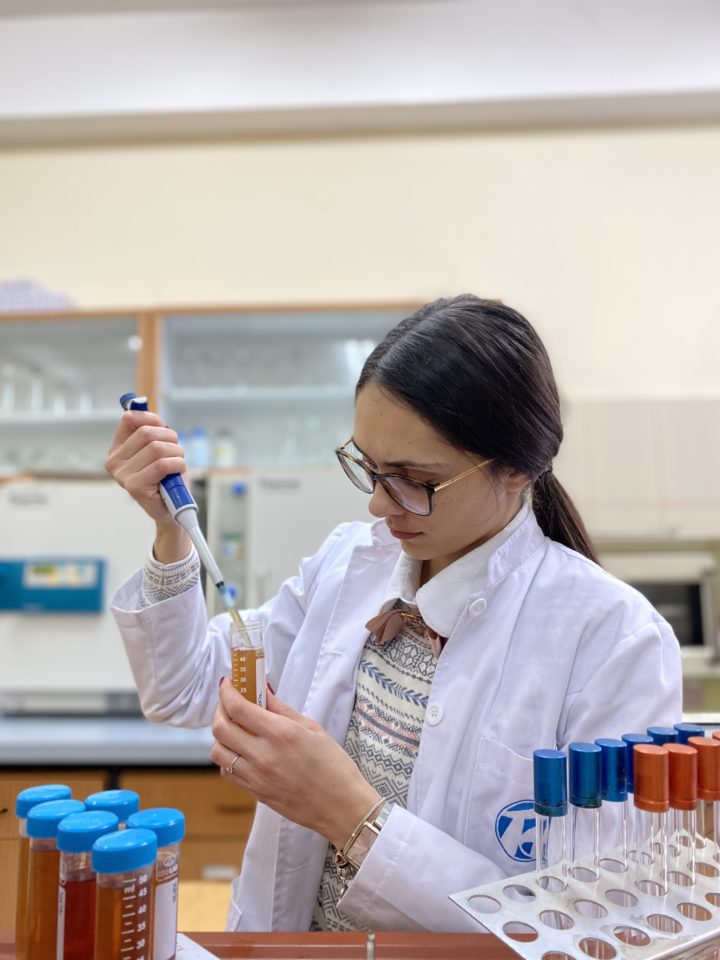
Twenty-eight-year-old Maja Milijaš is one of the youngest PhD holders in our country. Despite offers to go abroad and work, she chose to stay in Bosnia and Herzegovina, the country where she was born, grew up, studied, and has now started her family.
“Organization, dedication, and effort always pay off. I would love for my example to offer encouragement to those who want to follow the same or a similar path. Study what you want, believe in yourself, seek knowledge, ask for it from those who are obliged to provide it to you, and be consistent with yourself and your goals,” is the message of this young Doctor of Science.
Maja Milijaš is from Srpac, which is about 40 kilometers from Banja Luka. She obtained the title of Doctor of Science at just 28 years old. She explains that she worked for five years on the experimental and theoretical part of her dissertation, which was about the optimization of the mead production process with the aim of improving the characteristics of this type of beverage.

Her reason for choosing this topic, as she explained, was that it is an under-researched field with a very small amount of existing literature and data available, which gave her room for innovation. Additionally, this dissertation was a continuation of her previous research, which had a significant connection with her work.
During the entire process of writing the dissertation, she was supported by those closest to her, as well as those in her department, who, as she emphasizes, helped her to realize her dreams.
“Preparations for the start of the experiment began in January 2019, and the first analysis was done in February. Working continuously, I finished the experiment phase three years later, in February, while the actual writing of the doctoral dissertation lasted less than two years. At one point, there was an overlap, which was actually the biggest challenge, because all of this required a lot of time per day,” said Maja.
Although it seems as if this is all part of a well-developed plan, she didn’t always know that she wanted to get a PhD. Her enthusiasm, however, pushed her to continue after each step she completed. The journey to achieving this goal was long and difficult, but she ultimately succeeded, taking the last step.
Maja didn’t neglect other aspects of life while pursuing her dreams, but made a special effort to show equal devotion to her friends and family.
“One of the conditions I set for myself is not to neglect myself, my family, my friends, or my hobbies. Organization was the key to balancing all my obligations and my social life. Of course, there were always moments when I had to dedicate myself more to my research to a certain extent, but these phases were temporary and short-lived. If I had to give up everything else for the sake of my PhD, I probably wouldn’t have finished it, or I at least wouldn’t have completed it in this time frame,” explained Maja.
As she neared the finish line, she felt very relieved, but also anxious. After completing the final draft of her dissertation, it took six months to get the work approved and get through all of the procedures that have to be completed before the defense. This included a plagiarism check, a 30-day public inspection, and then evaluations and comments by other experts in the field. Total relief came only when she found out the date of the defense.
Despite having the possibility, as a qualified young scientist, to go abroad, Maja chooses to stay in Bosnia and Herzegovina because of her family, who has provided her with support and security through everything. For her, the idea of being separated from those important to her is as difficult as the reality of staying here.

“Regardless of where I am, my future is in front of me, but I believe that it’s much easier to build a foundation for success in your own country rather than somewhere where you’re a foreigner. Everyone chooses their own path and builds it in their own way, but I believe that leaving requires more serious motivations. On my scales, the balance prevailed in favor of the country where I was born, where I grew up, where I was educated, and now, where I have already started my family,” Maja concluded.
This article is part of a series of texts within the #EmployMe project of the Post-Conflict Research Center and Balkan Diskurs. The series aims to raise awareness about the problems that young people face in the field of education and employment in BiH and highlight some good practices in battling these obstacles. This series is part of the “Youth Retention Program in BiH – Opšta Mobilizacija,” implemented by the Nešto Više Association and PRONI Center for Youth Development, with support from the Delegation of the European Union to BiH.






